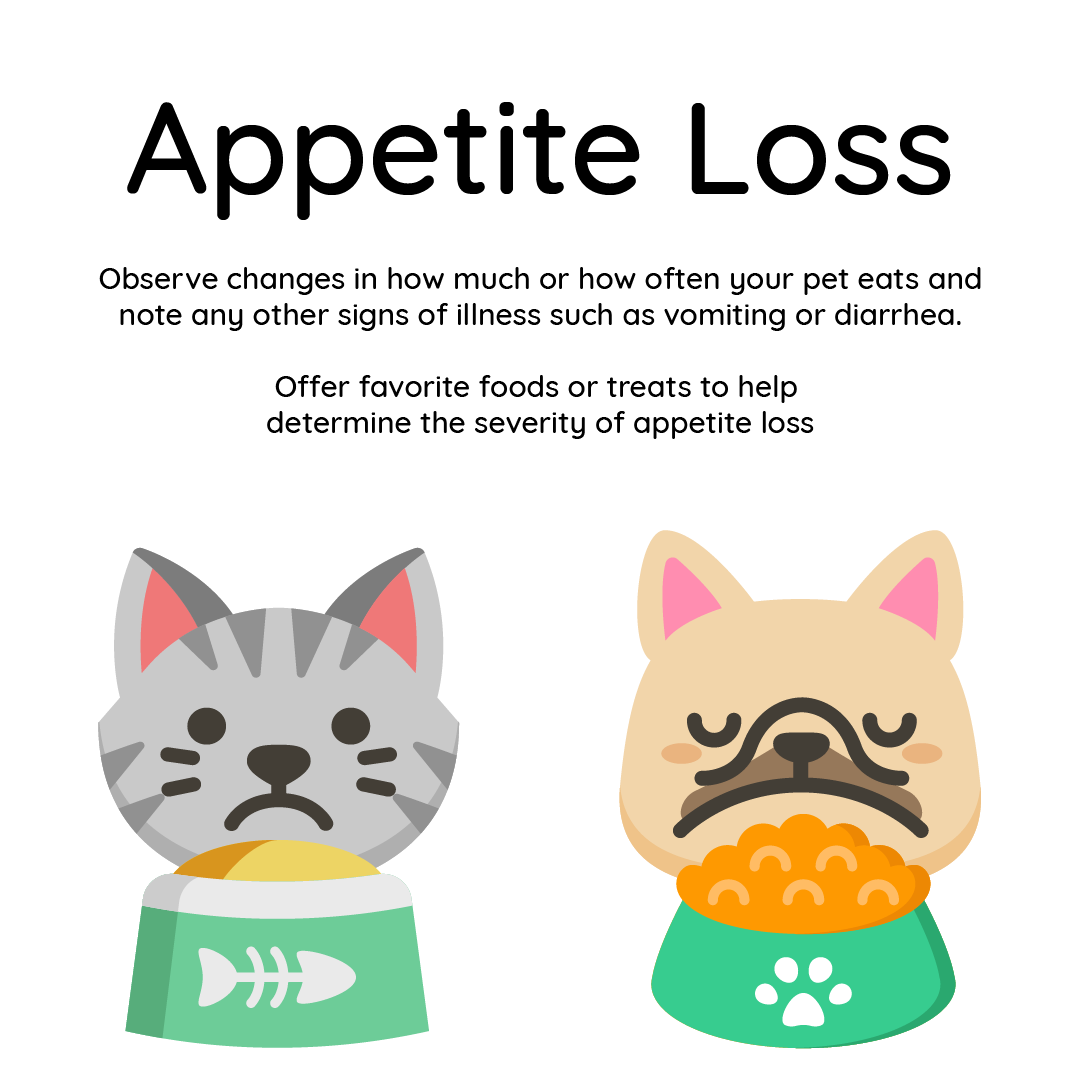Appetite Loss
Some pets scarf down food, some graze, and some regularly skip a meal or two. While these normal variations between pets are not concerning, a change in appetite may indicate an underlying illness or injury.

Recommendation
Observe changes in how much or how often your pet eats and note any other signs of illness such as vomiting or diarrhea. Offer favorite foods or treats to help determine the severity of appetite loss.
Tips
- Discontinue anti-inflammatory and pain medicines, until your pet is eating regularly. Consult with your vet about the need to stop other oral medications.
- If possible with a home scale, weigh your pet daily and notice any weight loss.